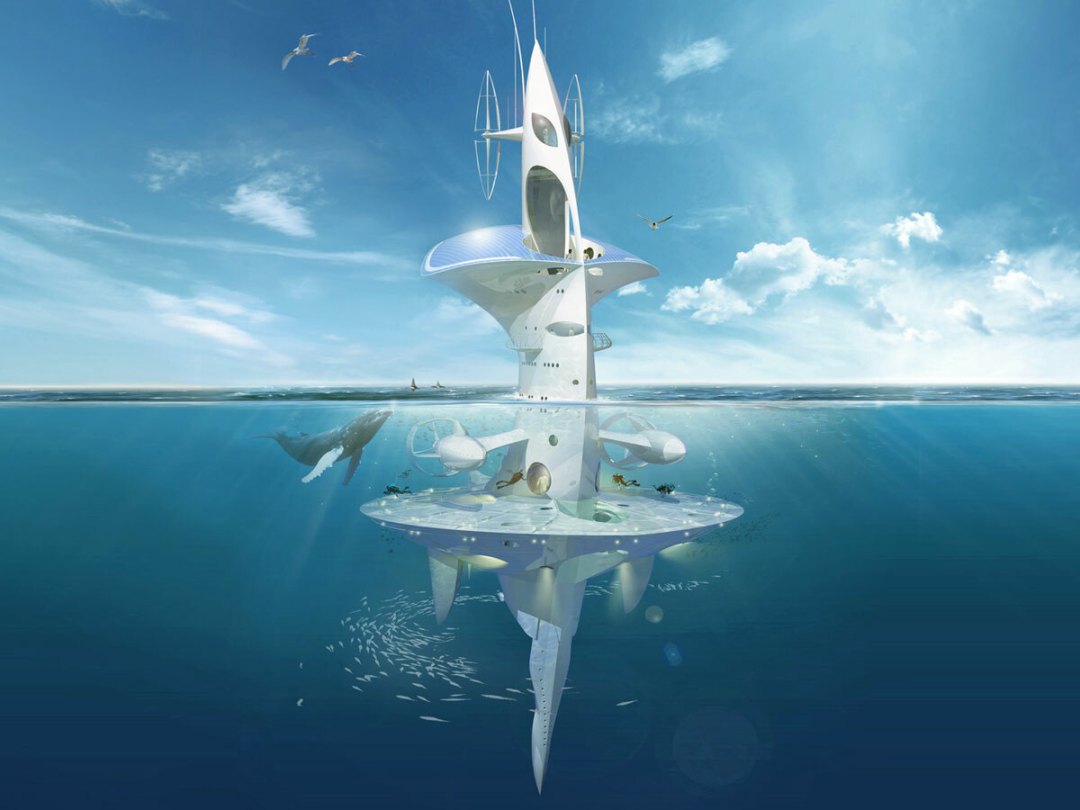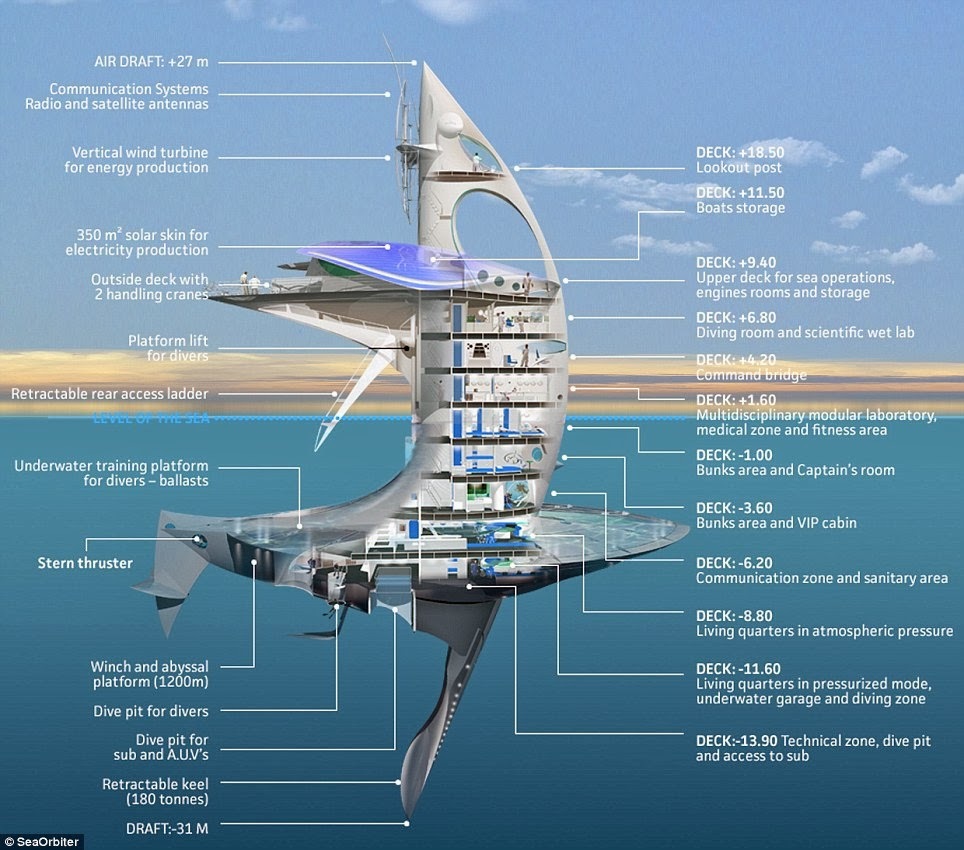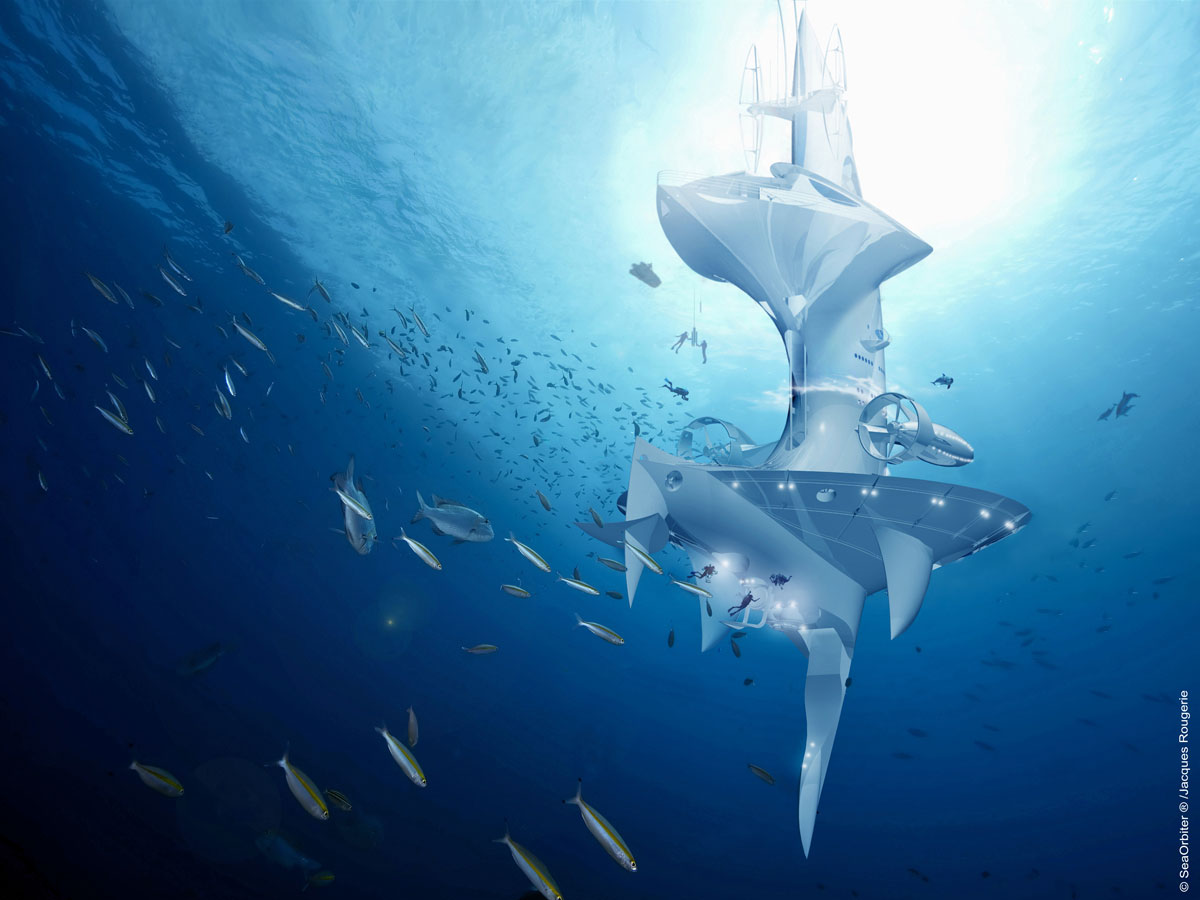Meet SeaOrbiter: the crazy ocean-roaming research station that might just discover Atlantis
200 feet tall and capable of exploring places we've never been before, it's set to revolutionise oceanography

SeaOrbiter is like something out of a movie: James Cameron’s The Abyss, perhaps, if it were set 30 years in the future. But this gigantic sea exploration platform is no science fiction dream – it’s set to be built very soon, then sent out to learn more about the oceans that cover over 70 percent of our planet’s surface.
Deep deep down
The solar-powered floating platform, which is 200 feet tall and can accommodate up to 22 permanent inhabitants for months on end, extends far below the surface of the water. This allows for sub-aqua observation through large windows, but more importantly allows SeaOrbiter to directly launch a variety of exploratory vessels, including a diving drone that can descend as deep as 6000m.
There no fewer than 12 decks on board (six above water, six below). The top platform sits 18.5m above sea level and will be used primarily as an observation post for keeping an eye on seabirds, whales and the like, while far below the surface one deck features a pressurised habitat that simulates the conditions in space (see, we told you it was like something out of a sci-fi movie). Meanwhile, onboard labs allow researchers to carry out experiments in situ.
Science is at the very core of the project: 90 percent of the ocean is still unexplored and scientists believe there are millions of species of creatures yet to be discovered – and SeaOrbiter is designed to help bring those figures down. It will also continuously record and monitor sound underwater, in order to locate organisms that cannot be seen.
In the future, the project founders want to have several SeaOrbiter platforms in operation at once, spread throughout the world’s oceans.
First mission: find Atlantis
SeaOrbiter is the brainchild of veteran oceanographer Jacques Rougerie, who has spent over a decade designing the vessel and attempting to secure funding for its construction. In the end, he turned to crowdfunding site KissKissBankBank to raise the final 30 percent of the €35 million (£29 million) required to build the craft.
He succeeded, and work will begin in the spring. Once completed, the SeaOrbiter will spend its first year sailing the Mediterranean Sea, mapping uncharted sections of the ocean floor and investigating shipwrecks and remains left behind by ancient civilisations – some of which are so deep that they have never been observed before. And hey, there might even be time to do some sunbathing on the observation deck. So where do we sign up?
[SeaOrbiter via Core77]


